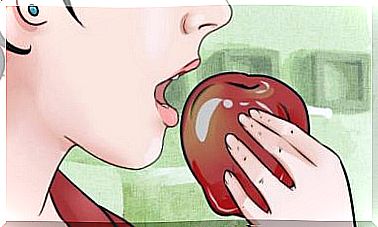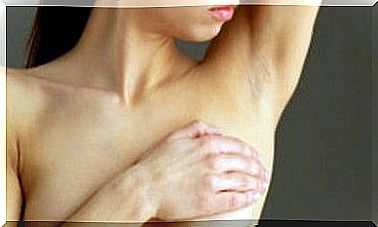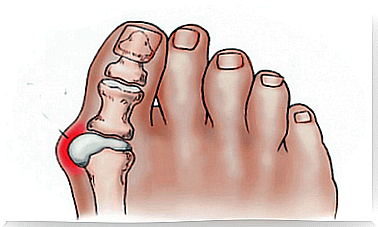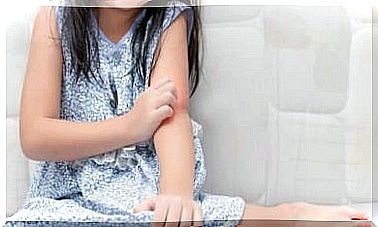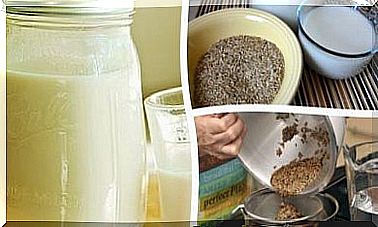Listeriosis In Pregnancy: What You Should Know About It!
Listeriosis is caused by raw food or close contact with animals, but it is relatively rare. However, pregnant women should cook food as a precaution and only consume pasteurized dairy products.
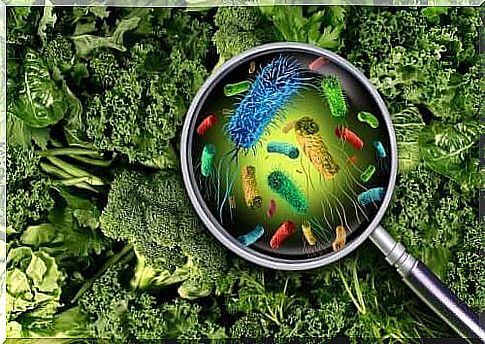
Listeriosis is an infectious bacterial disease caused by the bacteria Listeria monocytogenes . This disease is very rare in healthy people, but pregnant women and people with weakened immune systems are at risk, and the consequences can be serious.
Find out all you need to know about listeriosis during pregnancy in today’s article .
What is listeriosis
Listeriosis is an infectious disease that is caused by contaminated food or close contact with animals. The bacteria responsible for this are found in nature, so animals can be carriers. Vegetables, fruit or meat products can also be contaminated with it.
For these reasons, the bacteria can hide in the following products:
- Raw meat and fish
- Raw fruits and vegetables
- Unpasteurized dairy products
- Processed foods
- Smoked fish

Cooking or pasteurizing the food will eliminate the causative bacteria. It is therefore recommended that all people in the risk group do not eat raw meat or vegetables and only consume pasteurized milk, cheese or other dairy products.
It should also be taken into account that the bacteria could also be present in cooked foods. This is the case if these are contaminated again after cooking before consumption or packaging. Therefore, finished products (such as sausages, cold meat products, cold cuts, etc.) can also be dangerous and transmit the bacteria.
You also need to know that this bacteria is able to survive very low temperatures. This means that frozen products can also be contaminated.
If the mother-to-be is infected, it can have serious consequences for the growing baby. For this reason, it is of the utmost importance to properly watch your diet and take some other precautions to avoid contracting listeriosis.
Different types of listeriosis
As mentioned earlier, listeriosis is one of the most serious diseases that can be transmitted through contaminated food. Fortunately, it rarely occurs. The statistics of the World Health Organization (WHO) show that there are only 0.1 to 10 cases annually.
However, this rare disease has a very high mortality rate. That is why it is so important to take precautionary measures so that it doesn’t even happen.
There are two different types of listeriosis:
- Non-invasive listeriosis: It is a mild form that leads to gastroenteritis with a fever. It usually affects healthy people, but this infection has no serious consequences. However, it can be very serious for the risk group, which also includes pregnant women.
- Invasive listeriosis: This is a very dangerous infection with a high mortality rate (up to 20-30%). The most common symptoms include fever, muscle pain, sepsis (blood poisoning) and also meningitis (inflammation of the meninges).
The incubation period is one to two weeks in both cases. However, it can be extended to up to three months, which is why it is sometimes very difficult to diagnose the disease in time.
Listeriosis in pregnancy
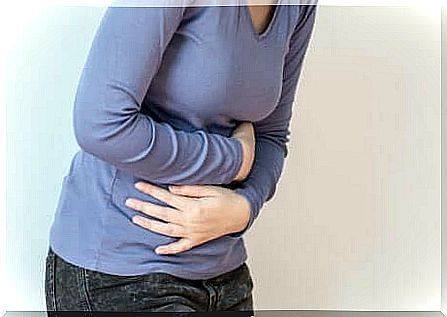
Listeriosis is particularly dangerous during pregnancy, not only for the mother but also for the growing child. If the mother is infected with the bacteria, the following consequences can occur:
- Miscarriage
- Premature birth
- Infection of the fetus or infant
- Death of the fetus or infant (in around 22% of cases of perinatal listeriosis, the fetus or newborn dies).
As already mentioned, the first symptoms appear some time after the consumption of contaminated products. These include, for example, the following complaints:
- fever
- muscle pain
- Nausea
- nausea
- a headache
Infection can occur at any time during pregnancy. But this usually occurs in the last phase of pregnancy, because then the mother’s immune system is often slightly weakened.
Treatment should be started as soon as possible. With this in mind, it is important to consult a doctor immediately in the event of possible symptoms in order to get to the bottom of the cause. The doctor will do a blood test to see if there is indeed an infection. If listeriosis is diagnosed, the doctor will usually prescribe an antibiotic, which will also prevent infection of the fetus.
prevention

The World Health Organization recommends 5 measures to prevent infection from contaminated food:
- Cleanliness and hygiene: it is very important to wash all products well. Don’t forget that you also always need to wash your hands before you start cooking. In addition, cleanliness in the kitchen and in the refrigerator is particularly important.
- Separating raw foods from cooked foods: this is how you can prevent cross-contamination.
- Cook everything well: It has been shown that foods cooked at 70ºC are no longer dangerous. You should be particularly careful with specific products, such as minced meat.
- Store the food at safe temperatures: You should not store cooked food for more than 2 hours at ambient temperature. It is also not advisable to thaw frozen products at ambient temperature (outside the refrigerator). Don’t forget to always pay close attention to the expiration date!
- Use Safe Water and Raw Materials: You should avoid processed and packaged foods.
Since the causative bacteria are usually found in uncooked, unpasteurized products, the best precaution is to avoid these foods altogether.
In addition to the precautionary measures mentioned, the following recommendations are also very important for pregnant women:
- Avoid unpasteurized milk and milk products (e.g. cream cheese).
- Heat sausage products and cold, processed meat (e.g. sausages) to at least 70ºC before consumption.
- Avoid smoked fish and meat.
- Always store leftover food in the refrigerator and never leave it at ambient temperature for more than two hours. You should never store food that has already been cooked for more than two to three days.
- Carefully read the product labels and store them as recommended.
Conclusion
While listeriosis is a very rare infectious disease, precautionary measures are essential to avoid serious consequences. Pregnant women need to be especially careful because an infection with listeriosis could be fatal for the growing child.
Proper hygiene measures and the avoidance of processed meat and fish products, as well as unpasteurized dairy products or other raw foods (especially meat and vegetables) are essential to avoid infection. In addition, it is important to monitor possible symptoms so that a medical examination and treatment can be initiated as soon as possible.


